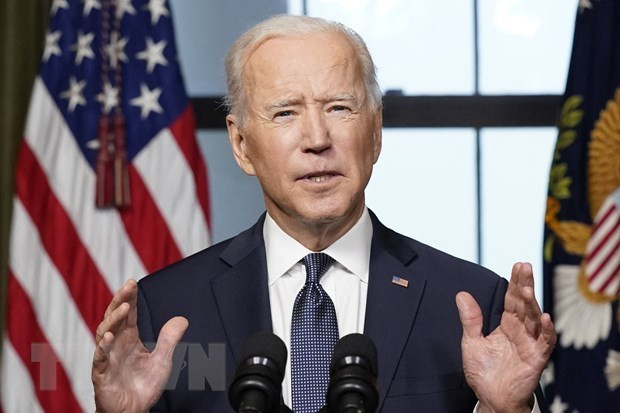Growing disagreements over how to fund the government are putting the United States at risk of losing payments to the military, law enforcement and other programs.

On September 28, the US House of Representatives voted to pass 3 out of 4 bills related to budget allocation for fiscal year 2024 but did not include a solution to prevent the risk of government shutdown.
According to Reuters news agency, the above move cannot prevent the risk of a US government shutdown, even if these bills overcome the opposition of Democratic senators in the Senate and become law.
Most Democrats have rejected House Speaker Kevin McCarthy's call for President Joe Biden to compromise to avoid a government shutdown in a divided House.
Mr. McCarthy has repeatedly called on President Biden to come to the negotiating table as Republicans seek changes to border policy and further spending cuts as part of a deal to avert a government shutdown on September 30.
But Democrats say Mr McCarthy is in a weaker position than he was earlier this year, when he used the threat of a national debt default as leverage to reach a deal with President Biden on budget restraint.
Before McCarthy spoke, the Senate passed a bill extending federal spending through November 17, giving more time to negotiate budget bills for the year. The bill also includes about $6 billion for domestic disaster relief and aid to Ukraine.
Many House Republicans believe the bill will not pass when it reaches the House because the chamber is working on a stopgap measure that includes a signature Republican border bill and sweeping cuts to government spending.
McCarthy said he was considering introducing a temporary Republican stopgap measure, known as a continuing resolution (CR), for consideration by the House on September 29 (local time). However, some House Republicans have said they will not support the resolution.
House Republicans hope to repeat their strategy of raising the debt ceiling earlier this year as GOP leaders negotiate with President Biden’s administration on a deal that would avert a national default for two years, along with limits on federal funding, changes to public assistance programs and other measures.
In May, President Joe Biden and House Speaker McCarthy reached a deal to avoid a government shutdown this year, ending a dispute over the federal debt ceiling and setting a $1.59 trillion budget target for the fiscal year beginning October 1.
However, many Republicans rejected the deal, demanding an additional $120 billion in cuts to this budget.
Growing disagreements over government funding are threatening to disrupt payments to the military, law enforcement, food safety and assistance programs, passport processing, travel, and more.
In the worst case scenario, if no deal is reached before the start of fiscal year 2024 (October 1, 2023 - October 30, 2024), the US government will have to shut down until a budget bill for next year is passed.
According to Vietnam+